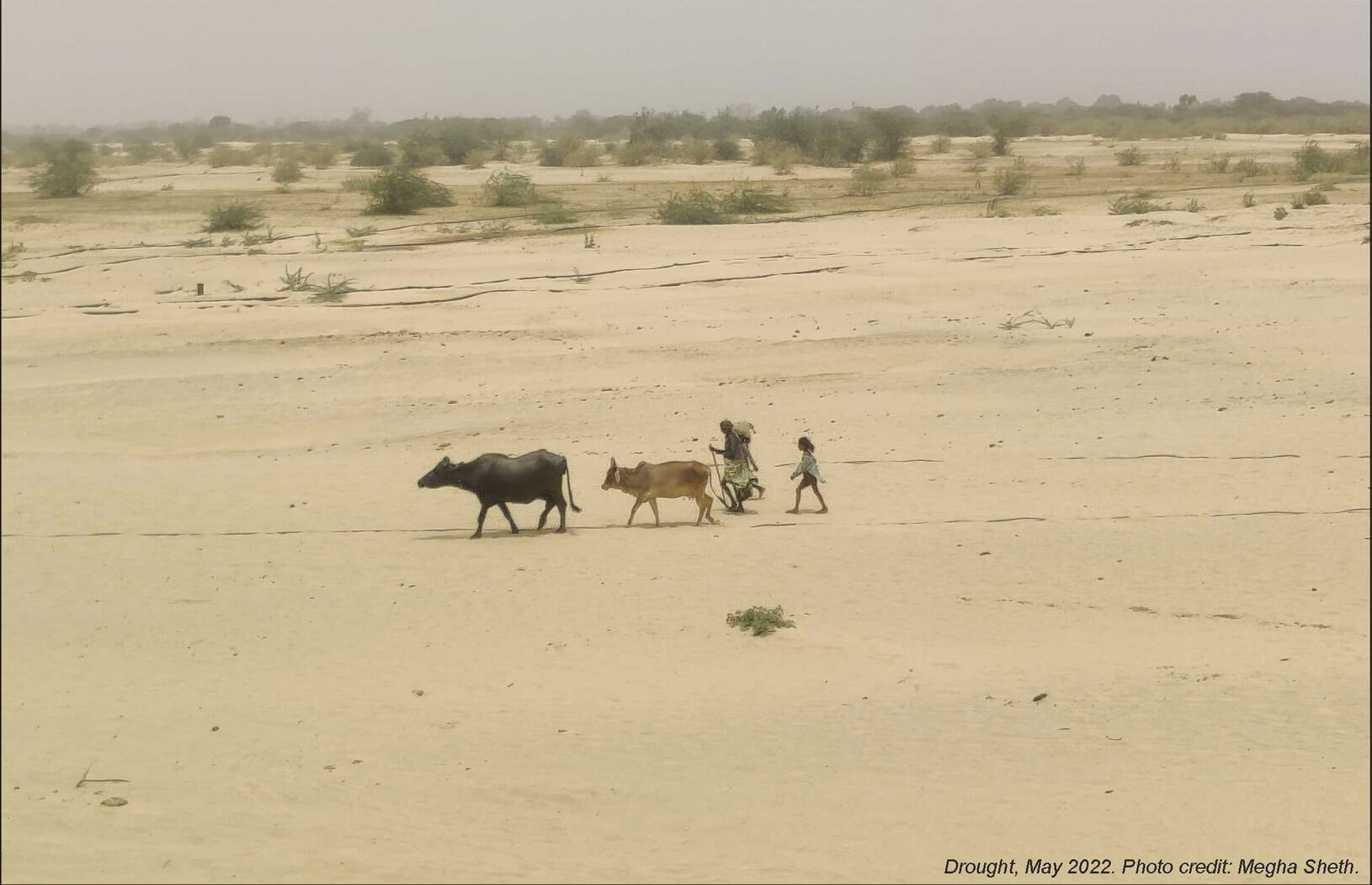
In recent years, we have seen a rapid acceleration in the pace of climate change with extreme weather events becoming more frequent and intense across the world. In many instances, some of these events exceeded historical norms and/or model projections (UNDRR 2024).
In South Asia, floods devastated regions across Afghanistan, India, Nepal, Pakistan and Bangladesh during the 2024 monsoon period. In some places, these events were interspersed by cyclones and storms. For example, several parts of North-Western India were in the grip of extreme rainfall and floods. The impact was further compounded by the incidence of cyclone Asna which scientists described as ‘rare’ since cyclones are not typical of the monsoon period (Choudhury 2024).
This is the ‘new normal’ of our global climate system as it becomes more variable and volatile with the incidence of climate extremes. However, there remain considerable uncertainties about the impact of such complex events (Mishra et al. 2024), especially when they strike in areas with no prior historical record of occurrence (such as floods in drought-prone areas) or at a time when they have not occurred before (early onset of heatwaves during spring in South Asia) (Srivastava et al. forthcoming).
In parallel, we are also witnessing a co-occurrence of multiple extremes (which are increasingly becoming co-located by way of being closely timed (such as droughts followed by floods) or co-occurring (such as droughts, heatwaves and wildfires). This is what we have called co-located hazards in the “Anticipating Futures: Forecasting and Climate Preparedness for Co-located Hazards in India” project (ANTICIPATE, funded by the British Academy) which hosts this Special Issue in collaboration with AIDMI. The project examined how different actors forecast and prepare for such co-located hazards under conditions of climatic uncertainty, and whether and how these practices can be integrated for building preparedness.
These extreme events indicate a shift away from what we may be familiar with towards uncertainty where the incidence, impact and scale of these events are difficult to predict accurately. Unlike risk where we know the odds and the probabilities can be calculated (cf. Wynne 1992), uncertainty is where one does not know the odds and probabilities cannot be calculated.
In our project, we argue that climate extremes have ushered us into a world of radical uncertainty where the past is no longer a good guide for the future (Srivastava et al. 2021). In the project, we have conceptualised this radical uncertainty in two ways: first, the lack of prior knowledge which limits coping/adaptation; second, the experience of high volatility which is just not ecological (caused by hazards or extremes) but its integration with other drivers including social arrangements (caste, class, gender, sexuality, ethnicity, ability) and political drivers (market forces, governance arrangements, etc.), which often tend to make the outcomes more uncertain for vulnerable communities on the frontline (Mehta et al. 2022).
The contributions in this volume bring out the multiple ways in which climate extremes shape uncertainties for various actors from climate scientists to the local communities on the ground. The first few articles highlight the complexities of forecasting such extremes and their communication. These are followed by a set of articles from different parts of the country which bring out the everyday and socially differentiated experiences of local communities with floods, droughts, heatwaves and landslides. They underline how the most vulnerable groups (women and landless communities) are bearing the brunt of these climate shocks and stressors and how the slow impacts generally remain hidden from the policy gaze. The contributions raise important questions about anticipation and limits to anticipation in the context of climate extremes.
In diverse ways, the articles highlight how the extremes are displacing assumptions of ‘known’ risks and stationarity and are compounding vulnerability across temporal, spatial and social scales. As such, extreme events become more pervasive globally, new and agile ways of thinking about preparedness are required which acknowledge local experiences and plural knowledge and are well aligned with local needs to build trust and reliability in anticipatory action and response.
References:
Disclaimer: The views expressed in this piece are those of the author/s and do not necessarily reflect the views or policies of AIDMI.